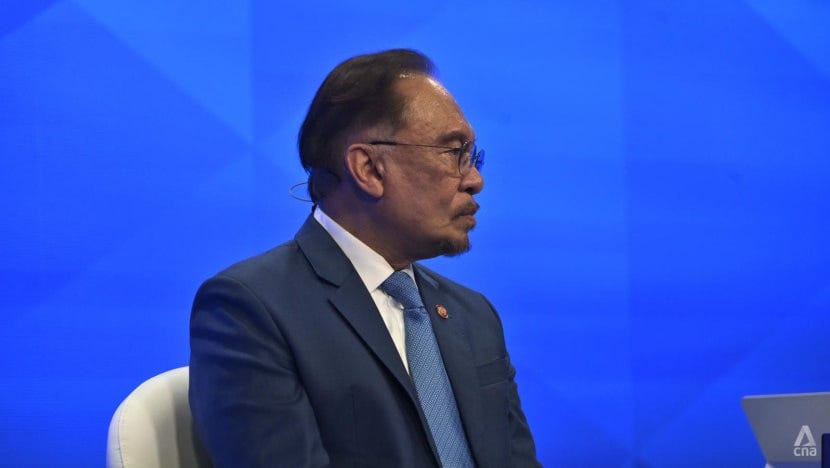
Murray Hunter
A Faustian Bargain: PM Anwar, Umno, and the erosion of judicial independence in Malaysia
P Ramasamy
Jul 12, 2025

Is Prime Minister Anwar Ibrahim caught between the devil and the deep blue sea?
In this analogy, the devil is Umno, and the deep blue sea is the political wilderness of losing power. One of the central reasons behind the growing controversy surrounding judicial interference may lie in Anwar’s heavy reliance on Umno to remain in power.
It is well established that without Umno’s backing—comprising over 20 MPs—Anwar could not have secured a majority to form the current unity government. Despite Pakatan Harapan’s sizeable bloc, it was the inclusion of Umno, along with support from Sabah and Sarawak coalitions, that convinced the Yang di-Pertuan Agong of Anwar’s legitimacy as Prime Minister.
However, Umno’s support came at a price.
To secure power, Anwar had to make concessions: key Cabinet positions were handed to Umno, the DAP—with its 40 MPs—was politically subdued, and there were implicit or explicit assurances that legal troubles facing senior Umno leaders would be alleviated. It was only a matter of time before several prominent Umno figures were granted discharges not amounting to acquittals (DNAA), while corruption charges against others were either dropped or left dormant.
Maintaining Umno’s support didn’t just require dropping charges—it also demanded a judiciary that was pliant, if not entirely subservient. While Malaysia’s judiciary was never fully independent of the executive, there were notable attempts at reform and resistance. Even so, recent developments—such as the non-extension of Chief Justice Tengku Maimun’s service—are widely seen as outcomes of a political compromise between Anwar and Umno.
The Madani government’s survival has come to hinge so deeply on Umno’s support that Anwar, despite his previous reformist stance, appears to have sidelined judicial independence in favor of political expediency. In effect, Umno has exacted its proverbial pound of flesh.
There is also the matter of Anwar’s own political vulnerability. Allegations of sexual misconduct by his former aide Yusoff Rawther, might be pursued in court damaging his standing is political standing. A weakened judiciary, unable or unwilling to challenge the executive, offers Anwar both a shield and a sword.
Rather than enhancing the Judicial Appointments Commission (JAC) through constitutional reforms, Anwar has chosen to defend his actions by insisting that all appointments follow constitutional provisions. This, however, rings hollow in the face of selective non-extensions and rising concerns over judicial independence. Critics argue that Tengku Maimun’s extension was denied not for procedural reasons, but due to her speech in Malta, where she boldly called for an independent judiciary free from executive interference. If true, this reflects a government intolerant of dissent and allergic to accountability.
The erosion of judicial independence has not gone unnoticed. Calls are growing louder: for the establishment of a Royal Commission of Inquiry, for Anwar to temporarily step aside, and for greater transparency in judicial matters. The Malaysian Bar Council’s planned march and the Secretariat on Judiciary’s call for Anwar’s resignation reflect deepening alarm over the trajectory of Malaysia’s legal institutions.
In the end, the concern is not just about one leader or one party—it is about the future of rule of law in Malaysia. A judiciary that bows to political pressure loses not only its relevance but its legitimacy. And without an independent judiciary, democracy itself stands on shaky ground.
No comments:
Post a Comment